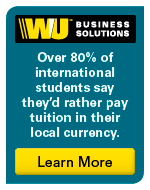
| IIE Home | Membership | Publications | Open Doors | Contact Us | Subscribe |
|
||||||||||||||
|
||||||||||||||
|
News
Application Deadline: November 21, 2014, 5:00 PM EST | Fund and Nomination Details
The Emergency Student Fund (ESF) of the Institute of International Education (IIE) is issuing a call for nominations from U.S. colleges and universities who have Syrian students on campus with urgent financial need due to the conflict in Syria.
IIE’s Syria-ESF will provide emergency grants ranging from $5,000 to $10,000 each to Syrian students nominated by their U.S. host colleges and universities who are unable to continue or complete their degree program in the U.S. due to serious financial difficulties precipitated by the situation in their home country.
Accredited U. S. campuses are invited to nominate up to five Syrian students at their institutions for whom help is needed to complete the spring semester 2015. International Student Advisers or other campus officials should complete the Syria-ESF nomination form and e-mail it to ESF@iie.org by November 21, 2014, 5:00 PM EST. Awards will be announced by December 19, 2014. Applications directly from students will NOT be accepted. U.S. host campuses nominating students for Syria-ESF awards are expected to provide some emergency assistance to the nominated students, through tuition waivers, full or partial scholarships, housing, stipends, loans, work study, or other forms of support.
IIE’s Emergency Student Fund provides grants to post-secondary students matriculated at accredited educational institutions outside their home countries whose sources of support have been impacted by natural disaster or other crises. Since 2010, IIE’s ESF has provided over $1.5 million in emergency grants to over 450 students from Japan, Haiti, Libya, Thailand, the Philippines, Syria, and Iran whose home sources of financial support were impacted by crisis or natural disaster.
Submission Deadline for Article Abstracts: December 15, 2014
The Institute of International Education (IIE) and the German Academic Exchange Service (DAAD) invite you to propose a chapter for an upcoming publication, Global Perspectives on Strategic International Partnerships.
The second in a series of joint publications, this volume seeks to provide a multitude of perspectives on strategic international partnerships and address key areas of interest for the global higher education community. The inaugural publication in this series, Global Perspectives on Joint and Double Degree Programs, addressed key aspects of creating and administering collaborative degree programs, drawing from a range of experienced professionals from around the world. Our upcoming volume on strategic international partnerships will be co-edited by Clare Banks (IIE), Daniel Obst (IIE), Nina Lemmens (DAAD), and Kirsten Habbich (DAAD), and include chapters by some of the foremost practitioners in the field.
The upcoming volume will draw from the expertise of professionals from around the world to discuss new trends, models, and best practices surrounding strategic partnership building. The publication will seek to answer the question: what makes a partnership strategic? And will tackle a range of related topics in practical, experience-based articles. With strategic international partnerships seemingly on the rise, Global Perspectives on Strategic International Partnerships will explore how these partnerships are being developed and sustained from a range of viewpoints, delving into topics such as funding, administration, strategy building, engaging faculty, and evaluating strategic partnerships.
Specifically, the book will address the following key areas:
To be considered for a chapter in the book, we invite you to submit a 250-word abstract by December 15, 2014. We aim to include chapters that showcase diverse institutional, cultural, and geographic perspectives. Co-authored chapters from multiple country perspectives are especially welcome. If your abstract is selected, the deadline to submit a full chapter of 4,000 to 6,000 words (including charts and tables) will be February 20, 2015. Submissions must be original work (i.e., previously unpublished in any format).
Please feel free to share this announcement. If you have any questions, or would like to discuss potential sub-topics within the key areas, please contact Clare Banks at cbanks@iie.org.
To demonstrate the growing threats to dissident intellectuals around the world, Aisha Labi shares in the Chronicle of Higher Education the stories of three scholars—a Syrian engineer, an Albanian writer living in Greece, and a Thai anthropologist—who recently fled to the United States. "To a greater extent than in previous wars and conflicts, scholars are now specifically attacked, and centers of learning have gone from being incidental victims to ‘battlegrounds’," said Allan Goodman, IIE President and CEO, in an interview for the article.
The Asia Pacific Economic Collaboration (APEC) Secretariat has released the report on the outcomes from the workshop "Promoting Regional Education Services Integration: APEC University Associations Cross-Border Education Cooperation" held last May. Participants identify barriers to mobility, best practice forms of cross-border education cooperation (CBE), and mechanisms for ongoing collaboration around CBE for the four themes that were discussed: enhancing the mobility of students, researchers, education providers, and virtual mobility.
The U.S. Department of Education (ED) welcomes its new Deputy Assistant Secretary for International and Foreign Language Education (IFLE), Mohamed Abdel-Kader. As Deputy Assistant Secretary of IFLE, Mohamed Abdel-Kader will "have responsibility for encouraging and promoting the study of foreign languages and the study of the cultures of other countries at the elementary, secondary, and postsecondary levels in the United States; and coordinate with related international and foreign language education programs of other Federal agencies," as established in the 2008 Higher Education Opportunity Act. He will be leading the work of IFLE in administering the domestic programs authorized under Title VI of the Higher Education Act and those overseas programs under the Mutual Educational and Cultural Exchange (Fulbright-Hays) Act that ED administers.
Prior to joining ED, Mohamed Abdel-Kader served as the Director of Development for the Edmund A. Walsh School of Foreign Service at Georgetown University and also managed the university’s advancement strategy in the Middle East region, where he focused on major gifts and strategic engagement.
Yojana Sharma reports for University World News on a controversial new plan by China’s eastern Jiangsu province to lure foreign students with generous scholarships. The plan has sparked outrage among Chinese students in the province over resources being directed to foreigners rather than to help Chinese students meet a rising fee burden. "In some cases fee rises for locals will be as much as 50% compared to last year or even 75%," writes Sharma. "Scholarships and grants for local students have not risen in line with these sharp increases, angering students and families."
Conferences
December 4, 2014 | Brussels
Early Registration Deadline: November 13, 2014 | Registration and Seminar Details
A rare phenomenon at the turn of the century, English-medium instruction has become a systemic feature in some European countries, particularly at the Master level. Even though the growth curve now shows signs of flattening, English-taught programs have become immensely numerous and popular in the last 15 years. This Academic Cooperation Association (ACA) European Policy Seminar will present, amongst other things, the key findings of ACA’s latest (2014) Europe-wide surveys of this form of tuition.
But the seminar will present far more than the recent ACA study. In an opening presentation, Adrian Veale of the European Commission will tackle the difficult question which language—or languages—Europe’s new global outreach strategy ("Europe in the world") should use to attract the world’s young talents to Europe’s universities and colleges.
February 20-23, 2015 | Newport Beach, CA
Early Registration Deadline: November 20, 2014 | Conference and Registration Details
Registration is open for Community Colleges for International Development's (CCID) 39th Annual Conference. Open to all, the "Peer Experience" theme will promote attendee-driven dialogue and community building on the topics and issues most pressing in community college internationalization. CCID seeks participation of those international education professionals from institutions who are just starting to internationalize to those who are forerunners of campus internationalization efforts.
Fulbright
 The Fulbright Visiting Scholar Program for Iraq and the Fulbright Junior Faculty Development Programs for Lebanon and the Palestinian Territories are designed to bring junior Iraqi, Lebanese, and Palestinian scholars to U.S. host institutions for faculty development, mentoring, and cultural exchange activities. These ten-week programs are designed to equip grantees with the knowledge and tools needed to build the capacity of universities in Iraq, Lebanon, and the Palestinian Territories and to advance the education of future generations. In addition, these programs lay the foundation for the grantees and their U.S. hosts to develop long-term institutional relationships and to identify areas of cooperation that can be sustained beyond the grant period. The Fulbright Visiting Scholar Program for Iraq and the Fulbright Junior Faculty Development Programs for Lebanon and the Palestinian Territories are designed to bring junior Iraqi, Lebanese, and Palestinian scholars to U.S. host institutions for faculty development, mentoring, and cultural exchange activities. These ten-week programs are designed to equip grantees with the knowledge and tools needed to build the capacity of universities in Iraq, Lebanon, and the Palestinian Territories and to advance the education of future generations. In addition, these programs lay the foundation for the grantees and their U.S. hosts to develop long-term institutional relationships and to identify areas of cooperation that can be sustained beyond the grant period.Proposals from U.S. host institutions are being sought to implement the ten-week summer programs. Successful proposals will provide participating institutions with a unique opportunity to establish lasting relationships with faculty members at universities in Iraq, Lebanon, and the Palestinian Territories. The program dates, academic cohort disciplines, and number anticipated numbers of scholars vary across the participating countries and territories. Institutions are invited to submit a proposal to host a Fulbright scholar cohort from one of the available programs.
Objectives
Deadline for Host Institution Applications
For more information please visit our website or email juniorfaculty@iie.org.
The Fulbright Program, sponsored by the U.S. Department of State’s Bureau of Educational and Cultural Affairs, is the U.S. government’s flagship international exchange program and is supported by the people of the United States and partner countries around the world. For more information, visit eca.state.gov/fulbright.
Partnerships
 IIE’s Center for International Partnerships is pleased to announce the Brazil international partnership initiative for the 2014-2015 cycle. If your institution is seeking to develop strategic institutional partnerships with higher education institutions in Brazil, please consider applying for IIE's International Academic Partnership Program. IIE’s Center for International Partnerships is pleased to announce the Brazil international partnership initiative for the 2014-2015 cycle. If your institution is seeking to develop strategic institutional partnerships with higher education institutions in Brazil, please consider applying for IIE's International Academic Partnership Program.Following four years of success, the International Academic Partnership Program (IAPP) will again guide a select group of U.S. higher education institutions over the course of a year in strategic planning activities focused on implementing partnerships with counterparts in Brazil. Since 2009, IAPP has engaged nearly 100 U.S. higher education institutions in comprehensive, year-long programs aimed at increasing the number of partnerships between U.S. higher education institutions and their counterparts abroad. Past participants have increased faculty exchanges, implemented strategic partnership plans, and expanded study abroad offerings within Brazil.
Program Information
Application Deadline: November 10, 2014
Program Cycle: November 2014–October 2015
Study Tour to Brazil: April 2015 (tentative)
Program Cost: IIENetwork Members $12,500/Non-members $14,000 (This includes all in-country costs for one representative from your institution to travel on the IAPP study tour, not including international airfare.)
For more information, or to download the IAPP application, please visit www.iie.org/iapp or contact Morgan Clark at mclark@iie.org.
Study Abroad
An article by Karin Fischer in the Chronicle of Higher Education discusses a recent push for legislation to increase government scrutiny of study abroad. Educators worry that a requirement for colleges to report health and safety information about courses overseas would "cause colleges and study-abroad providers to pull back from destinations or programs deemed risky," writes Fischer. "Such a retrenchment would run counter to a drive to ensure that more American students get an international experience."
Rick Noack in the Washington Post highlights seven affordable countries in Europe and Latin America where U.S. students can study in their native language. "What might interest potential university students in the United States is that Germany offers some programs in English—and it's not the only country. Let's take a look at the surprising—and very cheap—alternatives to pricey American college degrees," writes Noack.
 In her article in the latest edition of IIENetworker magazine, Heidi Manley, Deputy Director, Global Educational Programs at U.S. Department of State, looks closely at the profile of American students who are studying abroad to show the importance of diversifying in addition to increasing numbers. "At the Department of State, we want to reach parts of American society that are currently underrepresented in study abroad," writes Manley. "We want to see more young people travel to destinations where fewer Americans have studied, and to learn critical languages. In her article in the latest edition of IIENetworker magazine, Heidi Manley, Deputy Director, Global Educational Programs at U.S. Department of State, looks closely at the profile of American students who are studying abroad to show the importance of diversifying in addition to increasing numbers. "At the Department of State, we want to reach parts of American society that are currently underrepresented in study abroad," writes Manley. "We want to see more young people travel to destinations where fewer Americans have studied, and to learn critical languages.
Scholar Rescue Fund
 On October 24, 2014, the inaugural Scholar Rescue Fund Summit brought together IIE-SRF fellows and partners from the human rights, higher education, governmental, and non-governmental sectors to explore new opportunities to combat scholar persecution and its international consequences. Panelists examined sources of persecution, the impact of repression and conflict on higher education, and the resources available to respond to a global need. Michael H. Posner reflected on John F. Kennedy’s timeless call for moral courage and encouraged participants to "think beyond the obvious" in collective action. We thank all who participated and look forward to working with long-standing partners and engaging new ones as discussions continue long past the Summit’s closing remarks. On October 24, 2014, the inaugural Scholar Rescue Fund Summit brought together IIE-SRF fellows and partners from the human rights, higher education, governmental, and non-governmental sectors to explore new opportunities to combat scholar persecution and its international consequences. Panelists examined sources of persecution, the impact of repression and conflict on higher education, and the resources available to respond to a global need. Michael H. Posner reflected on John F. Kennedy’s timeless call for moral courage and encouraged participants to "think beyond the obvious" in collective action. We thank all who participated and look forward to working with long-standing partners and engaging new ones as discussions continue long past the Summit’s closing remarks.
An article published in The Atlantic, looks back on the Rockefeller Foundation’s rescue of scholars from Nazi Germany. Informed by the involvement of IIE and other international partners in the 1930s, the Foundation set five criteria for selecting scholars to receive its support. As threats to intellectual life span the globe today, these criteria remain astonishingly relevant. Reflecting on Syria, the author asks, "How many future Nobel laureates—how many intellectual lights—are now being swallowed up by the darkness of Syria’s civil war? And what’s the best way to save them?"
|
| www.iie.org/iienetwork • Member website of the Institute of International Education © 2024 Institute of International Education. All rights reserved. |



